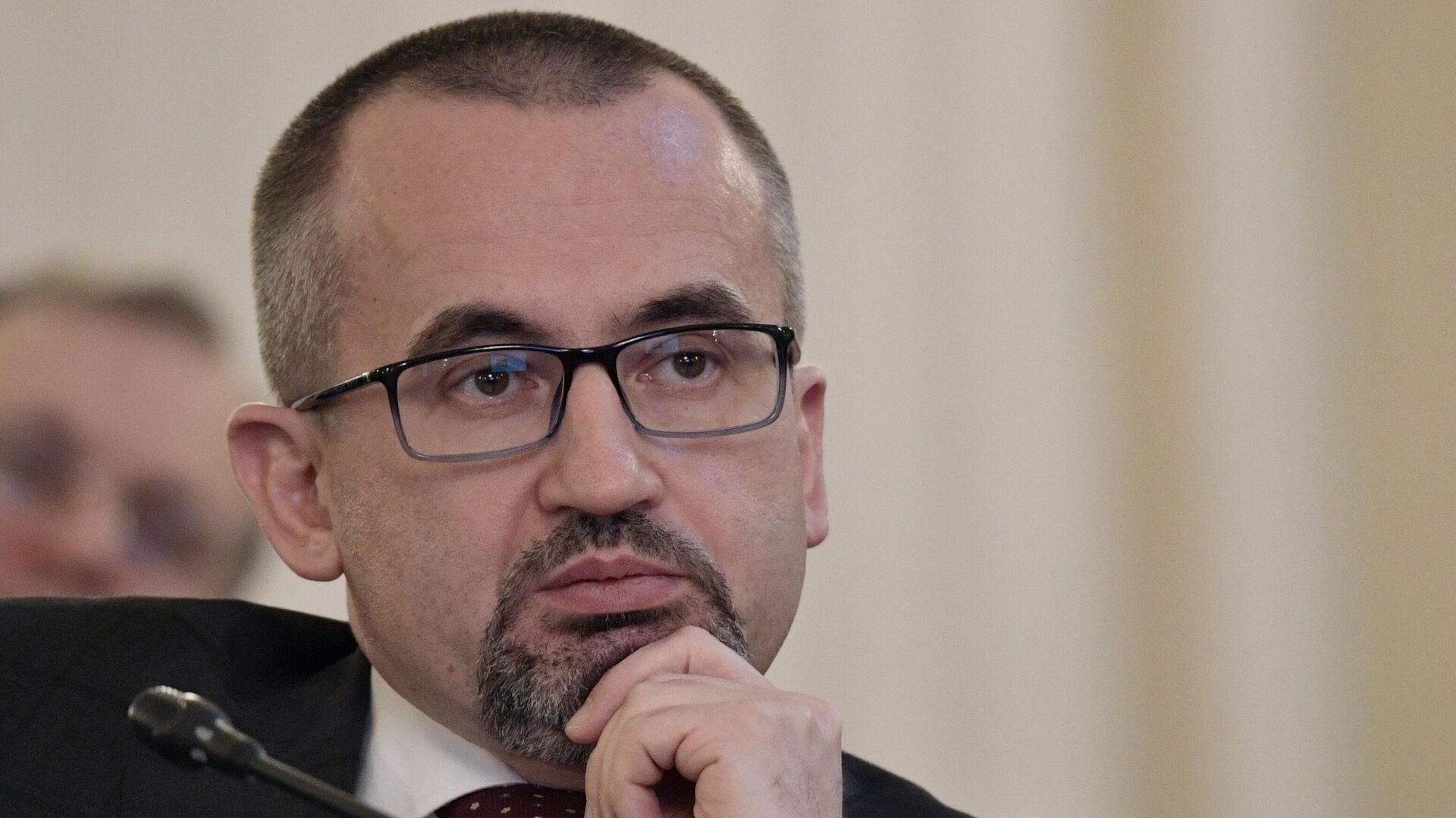No Russian Staff Hurt, No Property Damaged in Attack on Embassy in Ottawa, Ambassador Says
18:32 GMT 19.09.2022 (Updated: 19:11 GMT 19.09.2022)

© Sputnik / Photo host agency brics-russia2020.ru
/ Subscribe
WASHINGTON (Sputnik) - None of the personnel at the Russian diplomatic mission in Ottawa were injured and no property was damaged as a result of a Molotov cocktail attack on the embassy, Russian Ambassador to Canada Oleg Stepanov told Sputnik on Monday.
“On the night of September 11-12, at about 00:15, an unknown person threw an ignited Molotov cocktail over the fence of the embassy into its territory. He ran out of the park area adjacent to the embassy, threw a bottle and disappeared. Fortunately, the chemical composition itself did not ignite, the fuse burned out, and the bottle broke, but the incendiary mixture did not ignite,” Stepanov said. “None of the employees of the embassy were injured, and the property, by a lucky chance, was not damaged.”
Stepanov noted that Moscow issued a corresponding demarche with a diplomatic note and followed up on these actions during a conversation with representatives of the Canadian Foreign Ministry.
“The relevant work is also being carried out with the Ottawa police and RCMP (Royal Canadian Mounted Police),” he added. “Our main concern is that the current protocols that guide the Canadian services do not ensure the security of either our embassy, or the general consulates.”
Stepanov pointed out that the problem stems from the fact that the Ottawa police and RCMP forces pass by Russian diplomatic facilities during their regular patrols but do not maintain a permanent presence or a dedicated guard near these missions.
“In other words, if an emergency occurs, then the response speed can vary, which, first, allows attackers to hide, and most importantly, does not prevent similar sorties and criminal acts, because in this case we are essentially talking about an attempt to commit a terrorist act,” he explained.
Stepanov said Russian authorities have argued that having a police squad or a guard permanently stationed at the facilities would automatically deter any potential criminal actions and scare off any would-be intruders.
“Next time there could be a more serious attack. While the police are responding, this attack could cause casualties among our diplomatic personnel or cause irreparable damage to our property,” Stepanov warned.
Stephanov noted that it is in Canada's interests, as a party to the Vienna Convention, to protect the safety of accredited diplomats in Canada, regardless of their country of origin.
Stepanov also said that Russian officials have provided Canadian police with video footage of a Molotov cocktail attack on Russia's Embassy in Ottawa and expects that a thorough investigation will be conducted.
“We have handed over to the Canadian police video footage of what happened, and, of course, we expect that a thorough investigation will be carried out, which, I hope, will result in the arrest of this attacker,” Stepanov said. “We hope that Canadian authorities will draw appropriate conclusions from this case and strengthen measures to ensure the security of our diplomatic missions, which is especially important in the current difficult geopolitical situation.”
Earlier on Monday, the Russian Foreign Ministry summoned Canadian ambassador in Moscow Alison LeClaire and issued a strong demarche over the attack on the Russian embassy in Ottawa.
LeClaire was notified that Russia strongly objects to the criminal actions of the unidentified person who threw the Molotov cocktail onto the territory of the Russian Embassy in Ottawa. The ministry also conveyed its strong protest regarding another incident that saw aggressive demonstrators block access to the service entrance of the consular department at the Russian Embassy while a police squad that had arrived to the scene failed to act.
The ministry also demanded that Canada take immediate measures to ensure the security of Russian diplomatic missions.

